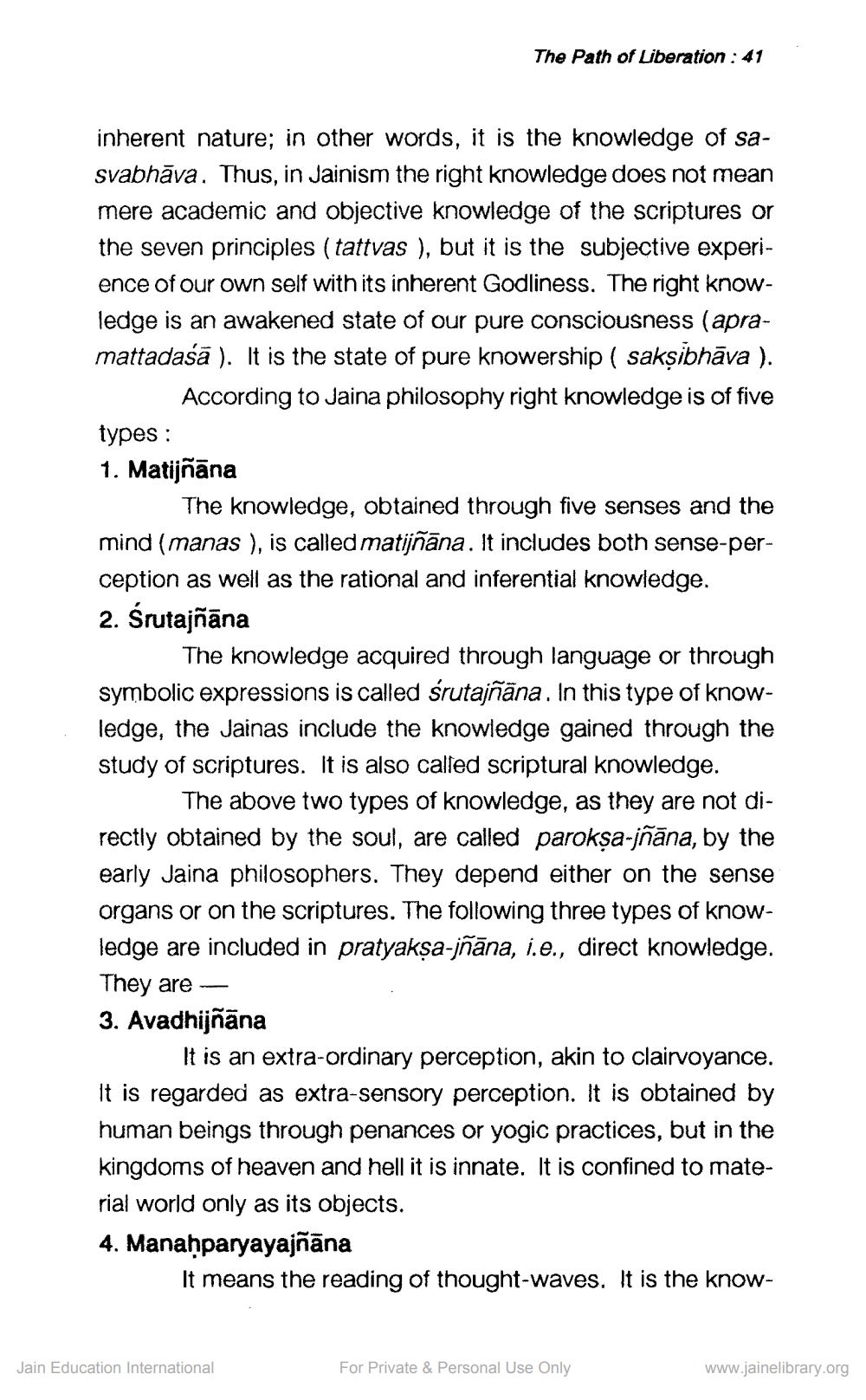________________
The Path of Liberation : 41
inherent nature; in other words, it is the knowledge of sasvabhāva. Thus, in Jainism the right knowledge does not mean mere academic and objective knowledge of the scriptures or the seven principles (tattvas ), but it is the subjective experience of our own self with its inherent Godliness. The right knowledge is an awakened state of our pure consciousness (apramattadasā). It is the state of pure knowership ( sakşibhāva ).
According to Jaina philosophy right knowledge is of five types: 1. Matijñāna
The knowledge, obtained through five senses and the mind (manas ), is called matijñāna. It includes both sense-perception as well as the rational and inferential knowledge. 2. Srutajñāna
The knowledge acquired through language or through symbolic expressions is called śrutajñāna. In this type of knowledge, the Jainas include the knowledge gained through the study of scriptures. It is also called scriptural knowledge.
The above two types of knowledge, as they are not directly obtained by the soul, are called paroksa-jñāna, by the early Jaina philosophers. They depend either on the sense organs or on the scriptures. The following three types of knowledge are included in pratyakşa-jñāna, i.e., direct knowledge. They are — 3. Avadhijñāna
It is an extra-ordinary perception, akin to clairvoyance. It is regarded as extra-sensory perception. It is obtained by human beings through penances or yogic practices, but in the kingdoms of heaven and hell it is innate. It is confined to material world only as its objects. 4. Manaḥparyayajñāna
It means the reading of thought-waves. It is the know
Jain Education International
For Private & Personal Use Only
www.jainelibrary.org




